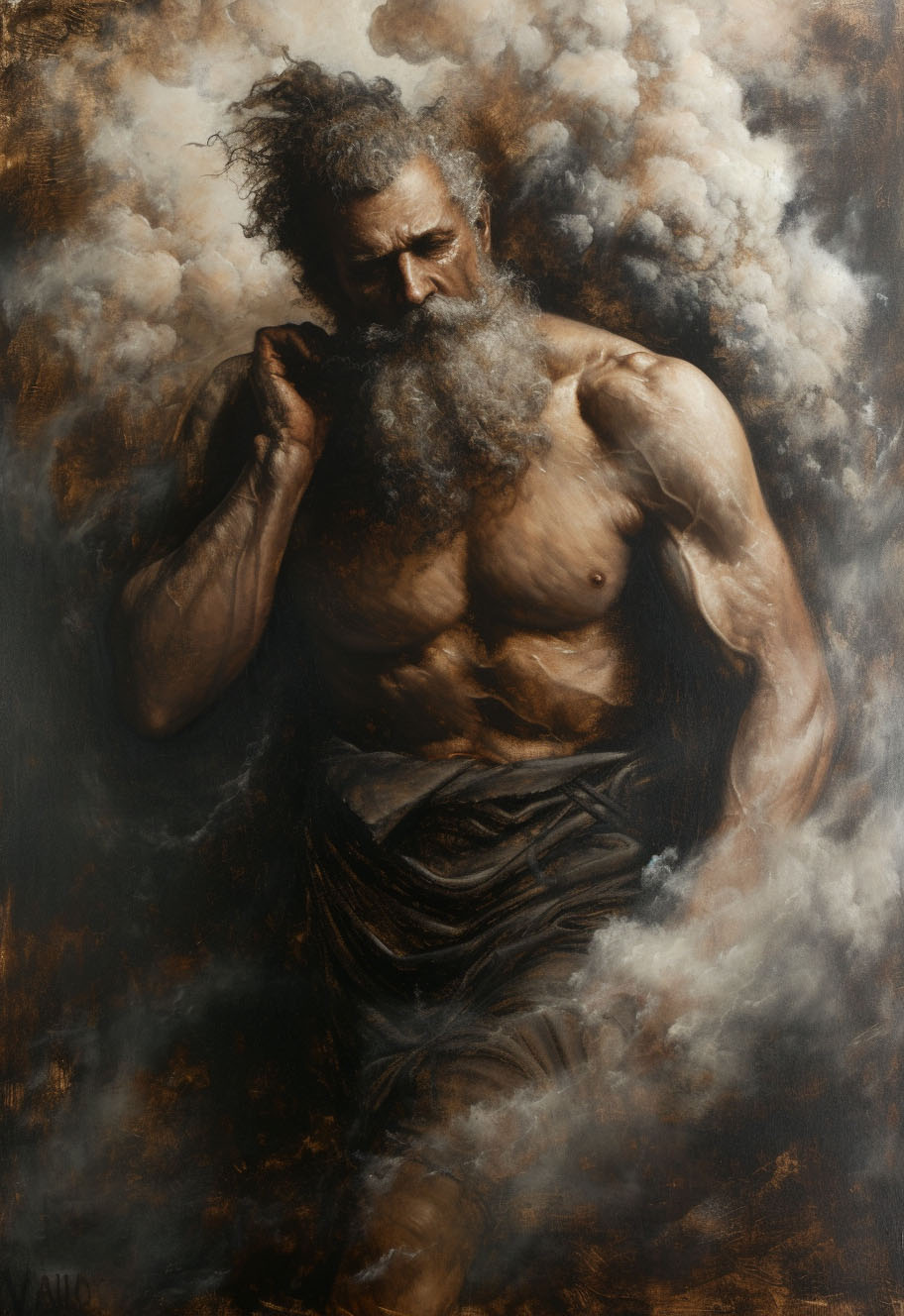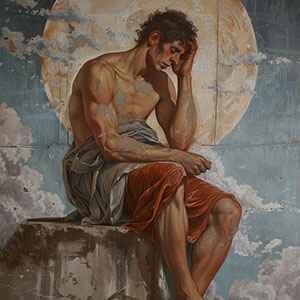Prometheus
In Greek mythology, Prometheus is a Titan who plays a crucial role in the creation of humanity and the acquisition of knowledge. Here are key aspects of Prometheus in Greek mythology:
Parents: Iapetus & Clymene
Siblings: Atlas, Epimetheus, Menoetius
Consort: NA
Children: NA

Parentage: Prometheus is a second-generation Titan, the son of Iapetus and Clymene. His siblings include Atlas, Epimetheus, and Menoetius.
Creation of Humanity: According to some myths, Prometheus played a key role in the creation of humanity. He shaped mankind out of clay, and Athena breathed life into them, a task that was originally assigned to his brother Epimetheus. Prometheus is often associated with human progress and civilisation.
Theft of Fire: One of the most famous myths involving Prometheus is his theft of fire from the gods to give to humanity. Fire symbolised knowledge, technology, and civilisation. This act angered Zeus, who sought to punish Prometheus for his defiance.
Punishment: In retaliation for the theft of fire and other gifts to humanity, Zeus ordered Hephaestus to create Pandora, the first woman, as a punishment for mankind. Additionally, Zeus had Prometheus bound to a rock, where an eagle (or vulture) would eat his liver daily. Prometheus, being immortal, would regenerate his liver each night, and the cycle would repeat.
Release by Heracles: Prometheus was eventually freed by the hero Heracles (Hercules) during one of his labours. Heracles killed the eagle and unbound Prometheus from the rock.
Foreknowledge of Zeus's Downfall: Prometheus possessed the gift of foreknowledge, and he was aware of a prophecy that predicted Zeus's downfall. Despite the suffering inflicted upon him, Prometheus refused to disclose this information to Zeus.
Prometheus Bound: The tragedy "Prometheus Bound," attributed to the ancient Greek playwright Aeschylus, dramatises the myth of Prometheus's punishment and his resilience in the face of divine retribution.
Symbol of Rebellion and Knowledge: Prometheus is often seen as a symbol of rebellion against oppressive authority and a champion of human knowledge and progress. His name means "forethought" or "forethinker," emphasising his role as a wise and forward-thinking figure.
Cultural Influence: The myth of Prometheus has inspired numerous works of art, literature, and philosophy. His symbolic significance extends to discussions of human autonomy, the pursuit of knowledge, and the consequences of challenging divine authority.
Roman Equivalent: In Roman mythology, Prometheus is often equated with the figure of Mānes, who shares similarities in his association with the creation of humanity.
Prometheus's story is a powerful myth that explores themes of rebellion, the acquisition of knowledge, and the consequences of defying divine authority. His enduring legacy as a symbol of human ingenuity and progress has left an indelible mark on Western culture.
Immediate Family

Clymene
Quick Facts
- He is a second-generation Titan.
- He played a key role in the creation of humanity.
- Prometheus stole fire from the gods to give to humanity.
- As punishment, Zeus ordered Hephaestus to create Pandora, and Prometheus was bound to a rock.
- Prometheus was eventually freed by Heracles.
- He possessed the gift of foreknowledge.
- The tragedy "Prometheus Bound" dramatises his punishment and resilience.
- Prometheus is a symbol of rebellion and knowledge.
- His myth has inspired art, literature, and philosophy.
- In Roman mythology, Prometheus is often equated with Mānes.
Further Reading
Art &
Architecture
Ancient Greek art and architecture, with its harmonious proportions and timeless elegance, continue to inspire awe and admiration millennia later.
Discover
Greek Mythology & Mythical Characters
Greek mythology, a rich tapestry of gods, heroes, and mythical creatures, captivates the imagination with its tales of love, betrayal, and epic adventures that delve into the depths of the human psyche.
Discover
Ancient Greek History
Ancient Greek history, marked by remarkable achievements in democracy, philosophy, and warfare, shaped the foundation of Western civilization, leaving an indelible legacy of innovation and cultural influence that continues to resonate to this day.
Discover
Ancient Greek Olympics
The ancient Greek Olympics, held in Olympia every four years, celebrated athleticism, unity, and cultural pride, serving as a testament to the enduring spirit of competition and excellence that transcends time and borders.
Discover
Ancient Greek Wars
Ancient Greek wars, such as the Persian Wars and the Peloponnesian War, were pivotal conflicts that shaped the course of history, highlighting the struggle for power, independence, and the clash of civilizations in the ancient Mediterranean world.
Discover
Ancient Greek Culture and Society
Ancient Greek culture and society, characterized by its emphasis on art, philosophy, and civic engagement, fostered a vibrant intellectual and social landscape where innovation flourished, democracy thrived, and the pursuit of knowledge and excellence was celebrated as fundamental values of civilized life.
Discover
